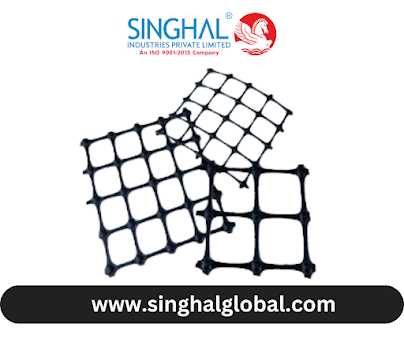Mastering the Art of Shipping: Tips for Proper Transportation of FIBC Bulk Bags
In the bustling world of logistics and transportation, ensuring the safe and efficient delivery of goods is paramount. For industries dealing with bulk materials, Flexible Intermediate Bulk Containers (FIBCs), commonly known as bulk bags, have become indispensable. Singhal Industries - Manufacturer of Flexible Packaging Product stands tall as one of India's most admired packaging companies, specializing in FIBC bags. With a commitment to quality and service, they continuously set the bar high for the industry. In this blog, we'll delve into essential tips for the proper transportation and shipping of FIBC bulk bags, ensuring your goods reach their destination unscathed.
Introduction to FIBC Bulk Bags
FIBC bulk bags are large, flexible containers used for storing and transporting bulk solids and powders. They come in various sizes, designs, and specifications to suit different industries and applications. Singhal Industries Pvt. Ltd., among the top Bulk bag manufacturers in Ahmedabad, specializes in crafting high-quality FIBC bags tailored to meet specific client needs.
Why Proper Transportation Matters
Proper transportation of FIBC bulk bags is crucial for several reasons:
Product Integrity: Ensuring that the contents of the bulk bags remain intact during transit is essential to maintain product quality and integrity.
Safety: Mishandling or improper transportation of FIBC bags can pose safety risks to workers and those involved in the shipping process.
Cost-Efficiency: Properly transporting FIBC bags reduces the likelihood of damage or loss, minimizing unnecessary costs associated with replacements or refunds.
Tips for Proper Transportation of FIBC Bulk Bags
1. Secure Packaging:
Ensure that the FIBC bags are securely packed and properly sealed before transportation. This prevents spillage and protects the contents from external contaminants.
2. Adequate Padding and Cushioning:
Use appropriate padding and cushioning materials, such as bubble wrap or foam, to protect the FIBC bags from impact during transit. This helps minimize the risk of tears or punctures.
3. Stacking Guidelines:
Follow recommended stacking guidelines to prevent toppling or collapsing of FIBC bags during transportation. Properly stacked bags distribute weight evenly and reduce the risk of damage.
4. Proper Handling:
Train personnel involved in the handling and transportation of FIBC bags to follow best practices. This includes using appropriate lifting equipment, securing loads properly, and avoiding sharp objects that could puncture the bags.
5. Weather Considerations:
Take into account weather conditions during transportation. Extreme temperatures or exposure to moisture can affect the integrity of FIBC bags and their contents. Use weatherproof packaging or consider alternative transportation methods if necessary.
6. Regulatory Compliance:
Ensure compliance with relevant regulations and standards governing the transportation of bulk bags. This includes proper labeling, documentation, and adherence to safety guidelines.
Conclusion:
Mastering the art of shipping FIBC bulk bags is essential for ensuring the safe and efficient transportation of bulk materials. By following the tips outlined in this blog and partnering with trusted manufacturers like Singhal Industries Pvt. Ltd., you can minimize risks and optimize the transportation process. Whether you're in need of 1-ton bag manufacturers in Gujarat or seeking bulk bag manufacturers in Ahmedabad, prioritize quality, safety, and compliance to achieve successful outcomes in your shipping endeavors.
For more information about FIBC bags manufacturers in India and how Singhal Industries Pvt. Ltd. can meet your specific needs, please visit their website or contact their dedicated customer support team.
Frequently Asked Questions (FAQs)
Q1: What are FIBC bags, and what are they used for?
A1: FIBC bags, or Flexible Intermediate Bulk Containers, are large, flexible containers used for storing and transporting bulk solids and powders. They are commonly used in industries such as agriculture, construction, and chemicals.
Q2: What are the benefits of using FIBC bags?
A2: FIBC bags offer several advantages, including cost-effectiveness, reusability, and ease of handling. They also provide excellent storage and transportation solutions for a wide range of materials.
Q3: How do I choose the right FIBC bag for my application?
A3: Consider factors such as the type of material being transported, desired capacity, handling requirements, and environmental conditions. Consulting with a reputable FIBC bag manufacturer like Singhal Industries Pvt. Ltd. can help you select the right bag for your needs.
Q4: Are FIBC bags recyclable?
A4: Yes, FIBC bags are recyclable and can be repurposed for various applications. Proper disposal and recycling practices help minimize environmental impact and promote sustainability.
.png)

.png)
Comments
Post a Comment